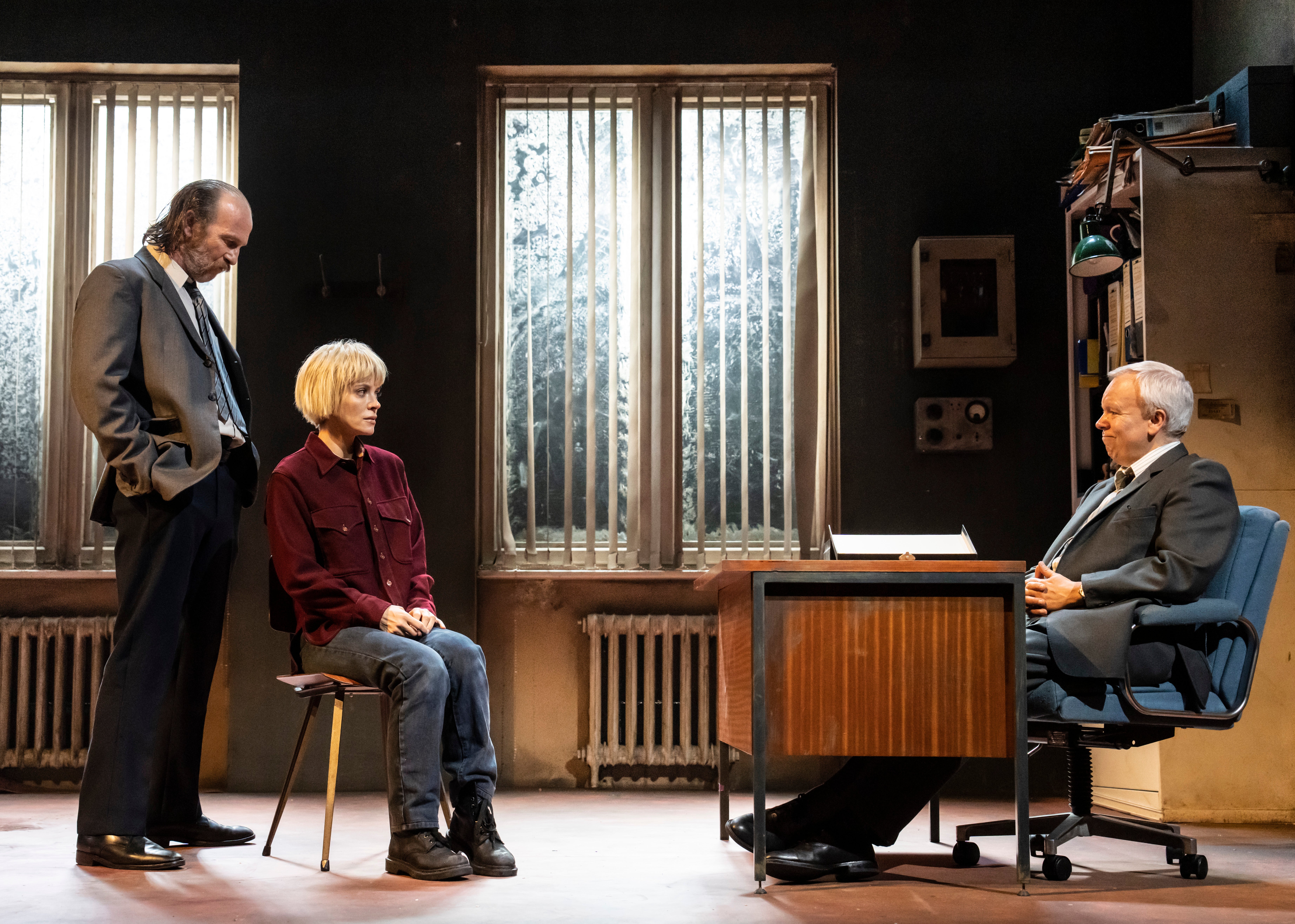The Pillowman review: A dark, twisted triumph despite lightweight Lily Allen’s one-note turn
The atmosphere is Kafkaesque and the stories like the Brothers Grimm on the heavy sesh. Lily Allen is frustratingly flat throughout, writes Jessie Thompson, but this extraordinary and troubling play from Martin McDonagh is a modern classic in waiting

Is it finally The Pillowman’s time? Martin McDonagh may now be the Oscar-winning writer and director of films such as Three Billboards Outside Ebbing, Missouri and The Banshees of Inisherin, but there’s always been a sense of unfinished business with his dark 2003 play. Reviews were lukewarm when it opened at the National Theatre 20 years ago; even so, plenty today describe it as their favourite play without ever having seen it, and McDonagh thinks it’s his best work. This major West End production, starring Lily Allen in a gender-flipped lead role, is – surprisingly – the first major London revival since the premiere. What we find is a modern classic in waiting, ready to meet our current moment.
Katurian (Allen), a writer of twisted, violent short stories, finds herself being questioned by the police – without knowing why. In designer Anna Fleischle’s seedy backroom office, bruiser policemen Tupolski (Steven Pemberton) and Ariel (Paul Kaye) physically threaten and rage at her. Yes, the atmosphere is Kafkaesque, the stories like the Brothers Grimm on the heavy sesh. But these are knowing references in a play fascinated with the question of how we keep storytelling alive. Soon, we discover that a string of horrible child murders have recently taken place, closely resembling Katurian’s stories – a girl who had to swallow razor blades, a boy with all his toes chopped off – and the officers believe she and her brother Michal (Matthew Tennyson) are responsible. They both face execution, something she is prepared to accept if they assure her that her stories will be saved.

Having directed McDonagh’s last good play Hangmen in 2015 (we don’t speak about 2018’s A Very Very Very Dark Matter), Matthew Dunster is in tune with the playwright’s blacker-than-black humour. There’s much for audiences to find distasteful still – boxes of severed toes, children impaled on crucifixes, discussions of abuse, torture and suicide – but they have a heightened Grand Guignol quality. Katurian insists her stories have no message, to which Topolski retorts, “Some poor little kid gets f***ed up – that’s your theme.” And as she argues against her work being read as a moral instruction, The Pillowman begins to feel like a case against a sanitised culture, one that fears ambiguity. She is arguing not just against a system that treats writers with suspicion, but one that doesn’t trust readers to understand the boundary between reality and imagination. The charge of murder – true or not – overshadowing the future life of Katurian’s stories echoes the art vs artists that has gripped our contemporary culture.
But The Pillowman grips not just because of the questions it tackles. We’re also transfixed by Katurian’s horribly messed-up stories. (The tale of The Pillowman himself is uniquely disturbing.) Even in our censorious times, our appetite for sordid voyeuristic tales continues, as reflected in our obsession with true crime. The question of whether art can be “good” – both technically and morally – is turned on the audience.
So Dunster’s revival is of an extraordinary play, given an almost great production. He directed Allen in her West End debut, 2:22 A Ghost Story, for which she received an Olivier nomination. Here, unfortunately, she feels limited, her performance one-note. Katurian was first played by David Tennant; Aaron Taylor-Johnson was originally cast here before the pandemic. I’m not convinced the gender flip works, but either way, Allen doesn’t give the role the same complexity as her more experienced castmates, which can feel frustrating. Pemberton and Kaye, though, are deliciously menacing and darkly funny as a pair of totalitarian police officers, hiding literary ambitions and a troubled past respectively, while Tennyson’s sing-song Michal gives us pathos. Early on, Katurian can’t remember whether telling a story is a storyteller’s first duty or only duty; whatever the answer, I’m glad this one’s being told again.
‘The Pillowman’ is at the Duke of York’s Theatre until 2 September
Join our commenting forum
Join thought-provoking conversations, follow other Independent readers and see their replies
Comments


Bookmark popover
Removed from bookmarks